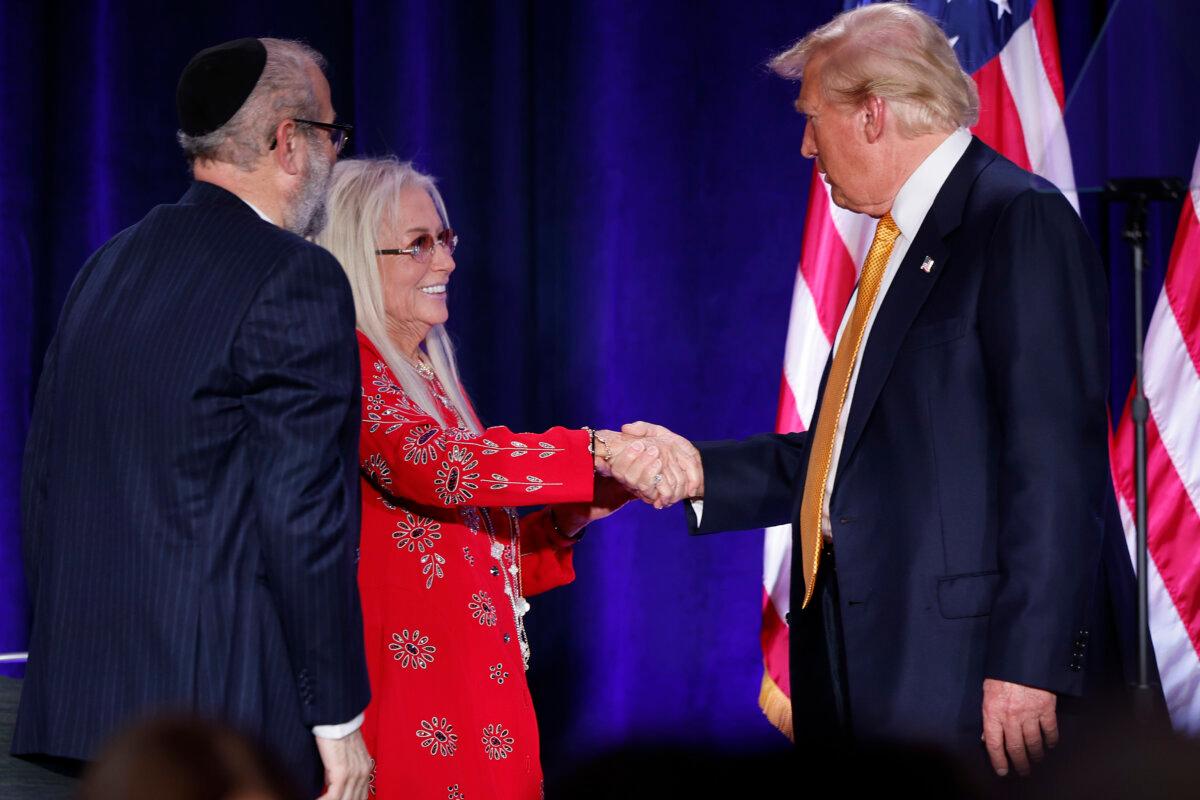Trump emphasized key pro-Israel policies from first term, highlighted Jerusalem’s capital status and exit from Iran deal.
WASHINGTON—Former President Donald Trump took to the stage to denounce anti-Semitism at two events on Sept. 19.
He also restated his commitment to support the state of Israel, saying, “Today we have to fight for Israel, but we’re gonna win the fight, so don’t worry about it.”
Trump’s speech at the Fighting Anti-Semitism in America event at the Hyatt Regency occurred shortly before another speech that he gave on day one of the Israeli-American Council (IAC) summit.
The speeches come just days after the GOP presidential nominee survived a second assassination attempt.
Trump’s speech at the first event was preceded by remarks from Miriam Adelson, Jewish super donor and owner of the Las Vegas Sands casino.
She strongly urged the attendees to vote for Trump in November, saying they “should already have made up” their minds.
Trump took time to acknowledge several GOP lawmakers in the room, including Rick Scott (R-Fla.), Ted Cruz (R-Texas), Joni Ernst (R-Iowa), and Mike Lawler (R-N.Y.), who sponsored an anti-Semitism bill in the House that passed in May with a vote of 320-91.
The bill, which is pending in the Senate, would codify a December 2019 executive order signed by Trump that would apply Title VI of the Civil Rights Act to Jews.
During his speech, Trump touted his pro-Israel initiatives from his first term. These included declaring Jerusalem Israel’s capital, recognizing Israel’s sovereignty of the Golan Heights, and withdrawing the United States from the 2015 Iran nuclear deal.
Anti-Semitism Partly Fueled by Gaza War
Trump’s remarks came after nearly a year of the Israel-Hamas conflict in Gaza, sparked by the Oct 7, 2023 attack on Israel by the terrorist group Hamas. Trump mentioned the attack in his remarks, calling it an “atrocity” and a “wake-up call.”
The war has resulted in heavy casualties and a refugee crisis in the region but also brought to light a political divide over U.S.-Israel relations.
College campuses experienced a rash of anti-Israel demonstrations in response to the war. Earlier this year, Jewish students at UCLA were blocked by protestors from attending classes; the university refused to assist them, prompting a lawsuit.

In some cases, protesters occupied campus buildings for weeks, demanding that the universities boycott, divest from, and sanction the nation of Israel.
In July, three Columbia deans were fired over allegedly anti-Semitic texts.















